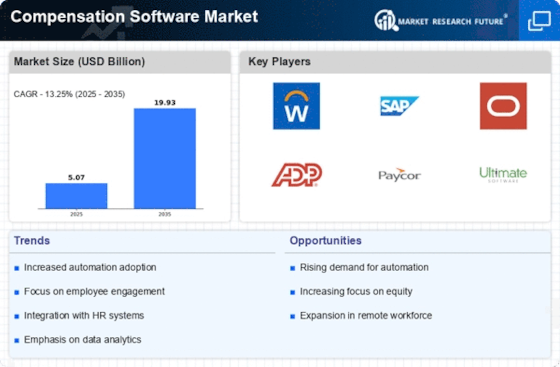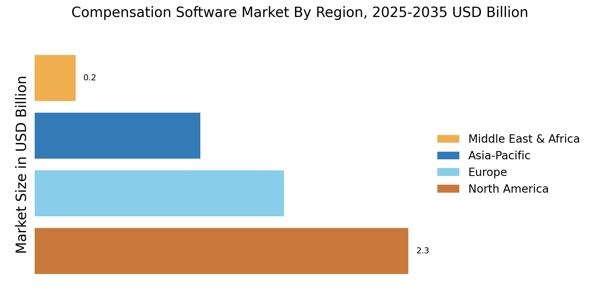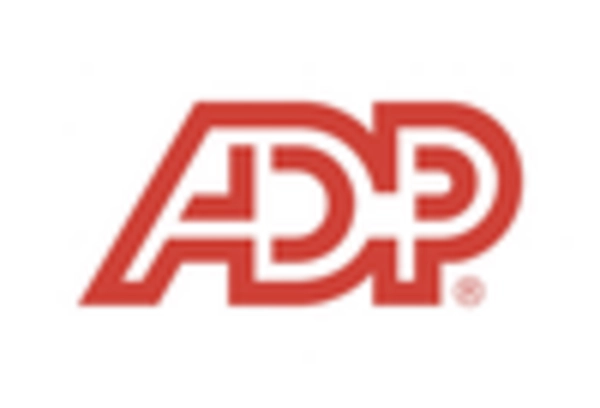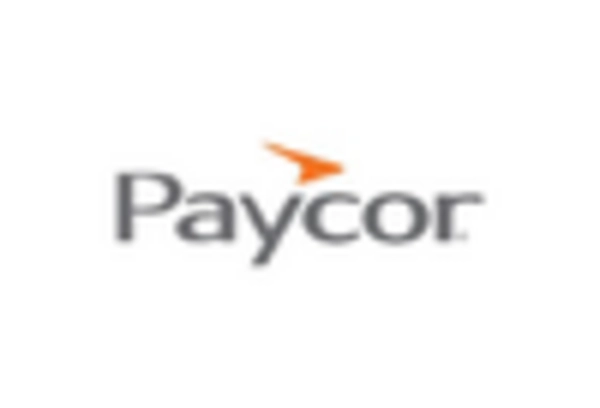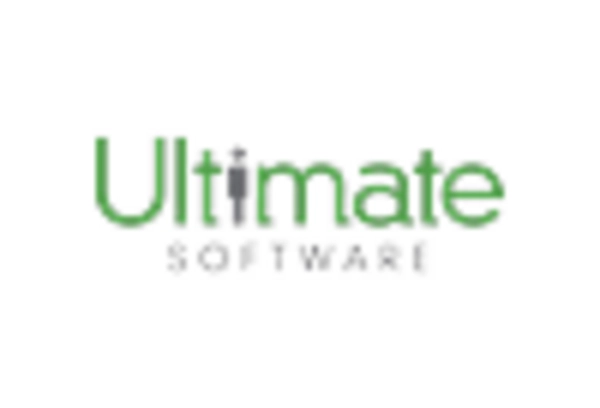Regulatory Compliance and Reporting
The Compensation Software Market is significantly influenced by the need for regulatory compliance and accurate reporting. As labor laws and regulations become more complex, organizations are compelled to adopt compensation software that ensures adherence to these requirements. This necessity is underscored by the fact that non-compliance can result in substantial financial penalties. Recent statistics suggest that companies utilizing advanced compensation software reduce compliance-related issues by approximately 30%. Consequently, the demand for software that simplifies compliance reporting and provides real-time updates on regulatory changes is on the rise. This trend highlights the critical role of compensation software in helping organizations navigate the intricate landscape of labor regulations.
Focus on Data-Driven Decision Making
The Compensation Software Market is witnessing a shift towards data-driven decision making. Organizations are increasingly relying on analytics to inform their compensation strategies, ensuring that pay structures are equitable and competitive. This trend is supported by findings that companies utilizing data analytics in their compensation processes see a 15% increase in overall employee satisfaction. As businesses strive to create transparent and fair compensation practices, the demand for software that provides robust analytical tools is growing. The Compensation Software Market is responding by integrating advanced analytics capabilities, enabling organizations to make informed decisions based on real-time data and market trends.
Increased Demand for Employee Engagement
The Compensation Software Market experiences heightened demand for solutions that enhance employee engagement. Organizations recognize that competitive compensation packages are crucial for attracting and retaining talent. As a result, companies are increasingly investing in compensation software that provides insights into employee performance and satisfaction. According to recent data, organizations that utilize compensation software report a 20% increase in employee retention rates. This trend indicates that businesses are prioritizing tools that not only streamline compensation processes but also foster a culture of engagement and recognition. The Compensation Software Market is thus evolving to meet these needs, offering features that allow for personalized compensation strategies tailored to individual employee contributions.
Integration of Advanced Technology Solutions
The Compensation Software Market is being transformed by the integration of advanced technology solutions. Innovations such as artificial intelligence and machine learning are enhancing the capabilities of compensation software, allowing for more accurate forecasting and personalized compensation plans. Organizations are increasingly adopting these technologies to streamline their compensation processes and improve efficiency. Recent data suggests that companies implementing AI-driven compensation solutions can reduce administrative costs by up to 40%. This technological advancement not only optimizes compensation management but also empowers organizations to make strategic decisions based on predictive analytics. The Compensation Software Market is thus evolving to incorporate these cutting-edge technologies, positioning itself for future growth.
Rise of Remote Work and Global Talent Acquisition
The Compensation Software Market is adapting to the rise of remote work and the need for global talent acquisition. As organizations expand their reach to attract talent from diverse geographical locations, compensation strategies must be adjusted accordingly. This shift necessitates compensation software that can accommodate various currencies, tax regulations, and compensation benchmarks across different regions. Data indicates that companies leveraging compensation software to manage remote teams experience a 25% improvement in workforce productivity. The ability to offer competitive compensation packages tailored to local markets is becoming increasingly vital. Thus, the Compensation Software Market is evolving to support organizations in navigating these complexities.


